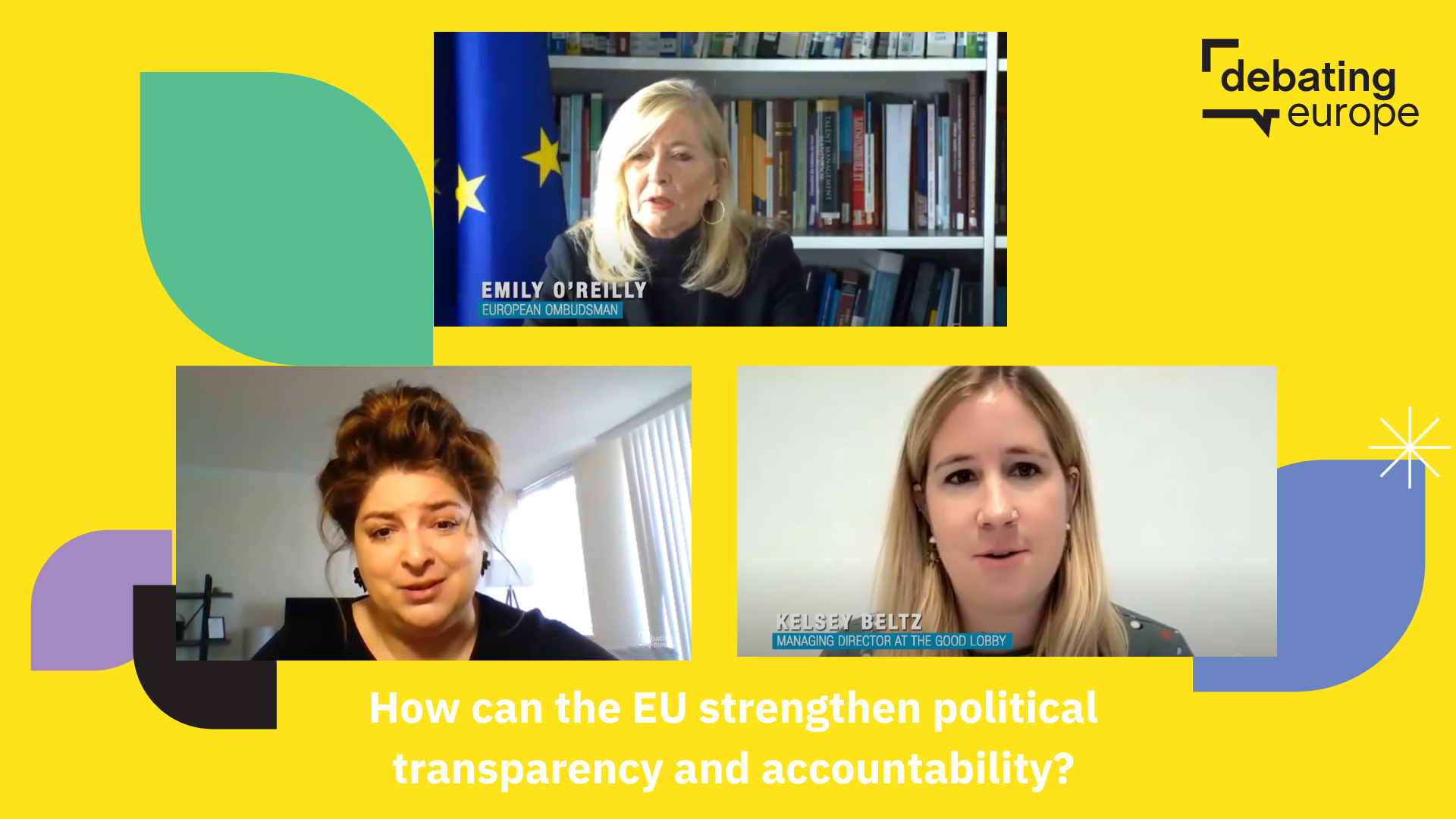Events
How can the EU strengthen political transparency and accountability?
Material
Download
Should there be a stricter EU-wide Directive on lobbying? In a May 2022 report, European Ombudsman Emily O’Reilly set out how EU rules could be tightened to close the “revolving door” between politics and business, with senior politicians and officials often finding jobs as lobbyists after leaving their positions.
However, following the “Uber Files” lobbying scandal in July 2022, the Ombudsman went further and floated the idea of European-wide directive to tighten rules at both Member State and EU level, saying: “As you see with the Uber issue, it wasn’t just the EU administration that was being lobbied, it was member states. Different member states were being, shall we say, picked off… It’s not enough to make sure that lobbying is managed within the Commission. It also has to be managed at [European] Council level, and Member-State level.”
In order to discuss solutions with citizens, Debating Europe, in partnership with Fondazione Cariplo, organised a series of online focus groups with 40 young Europeans to think of ways to regenerate European democracy. The report summarising the output of our focus group discussions was published at Friends of Europe’s high-level State of Europe roundtable event in Brussels on Thursday 27 October.
You can read the report here.
Want to learn more about transparency and accountability in the European Union? Check out our infographic below (click for a bigger version):

What do our readers think? We took some of the comments and ideas on EU political accountability and transparency generated during our focus group discussions and put them to:
- Emily O’Reilly, European Ombudsman
- Andreea Năstase, Assistant Professor at the Faculty of Arts and Social Sciences (FASoS) of Maastricht University; her research focus includes public ethics and integrity in the context of EU governance
- Kelsey Beltz, Managing Director of The Good Lobby, a “non-profit civic start-up committed to equalising access to power for a more plural, inclusive and democratic society”
In terms of political accountability, Niels, a young participant in one of our online focus groups, was disappointed in EU politics. He said:
? I think we should reform the election system of Europe. There’s a lack of transparency. If we see Ursula von der Leyen as the Commission President, nobody voted for her. I remember Manfred Weber campaigning. [But] nobody voted for von der Leyen.
Another focus group participant, Mariana, also finds EU politics quite opaque. She told us:
? It feels like the people that I’m voting for are not necessarily the people that will be leading me. That transition is not really that transparent. I know the people that I’m electing from my Member State, but I don’t know the people at a higher role, in terms of governing the European Union or the European Parliament.
Next, Karan told us he was concerned about the influence of lobbying on European policymaking. He said:
? Political leaders don’t really take the decisions, in fact big corporations and lobby agencies do.
Finally, Mark thought the European Parliament should be much stronger to improve political accountability. He told us:
? Certainly, there is a democratic deficit on a European level. It’s quite cynical that the European Parliament is the only institution where members of the EU can vote and send representatives, yet they are restricted in the impact of their decision making.
You can see the responses to these comments in the video at the top of this post!
How can the EU strengthen political transparency and accountability? Is there still a ‘democratic deficit’ in the EU? How can we make European politics a bit clearer? Could corporate lobbying be made more transparent? Let us know your thoughts and comments in the form below and we’ll take them to policymakers and experts for their reactions!
Photo by Guillaume Périgois on Unsplash
Editorially independent content supported by: Fondazione Cariplo. See our FAQ for more details. Funded by the European Union. Views and opinions expressed are however those of the author(s) only and do not necessarily reflect those of the European Union or the European Commission. Neither the European Union nor the granting authority can be held responsible for them.![]()

